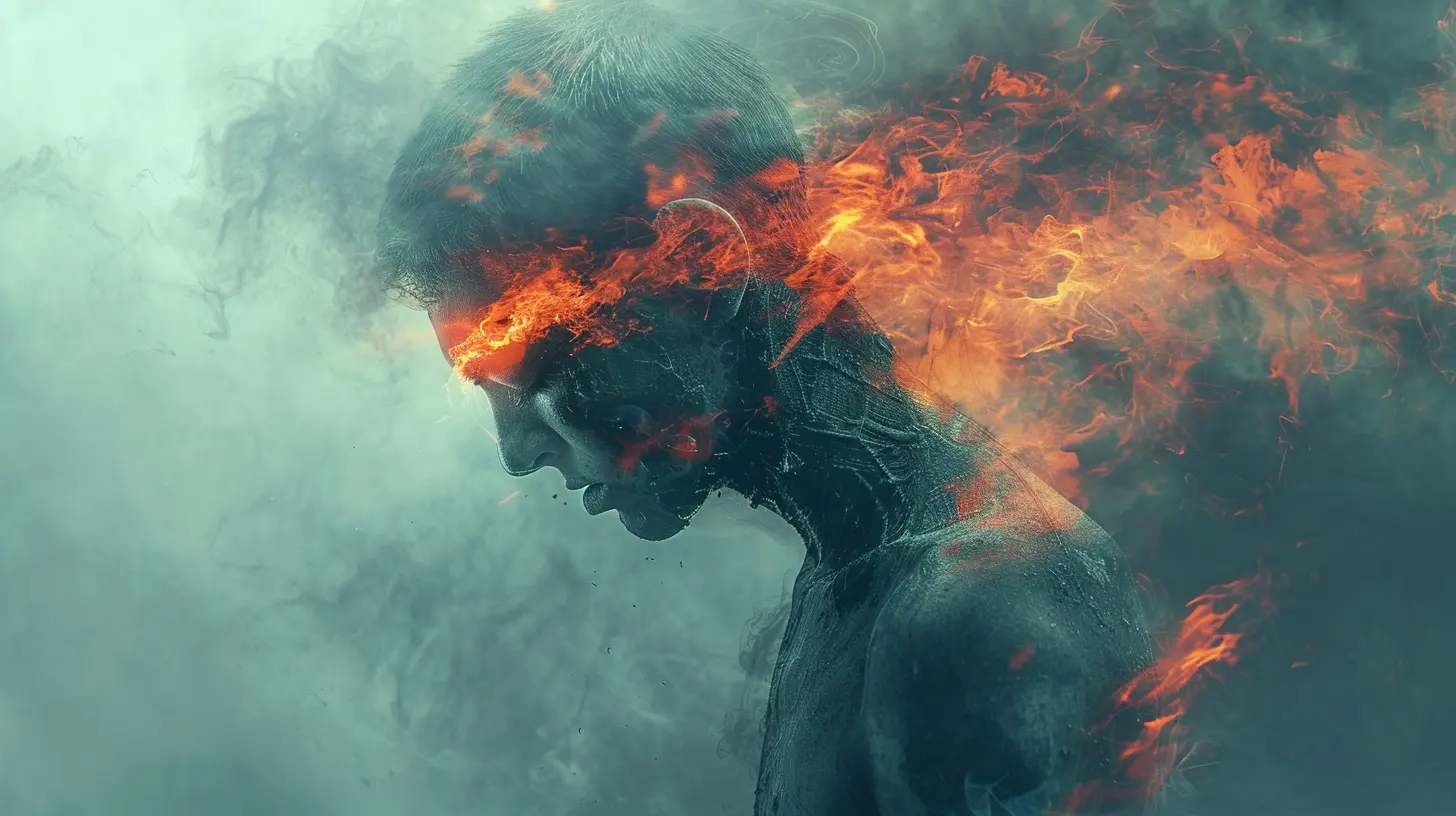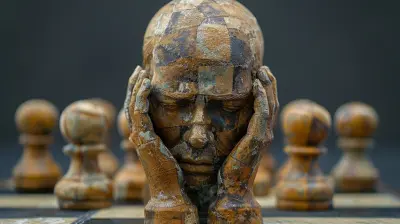Trauma and Emotional Flashbacks: Reliving the Past in the Present
26 May 2025
Ever had a moment when a smell, a sound, or even a simple phrase sends you spiraling back to a painful memory? One second, you're sipping coffee, and the next, you're drowning in emotions that feel all too real—like you're right back in the past. That, my friend, is an emotional flashback, and if you've ever experienced trauma, you probably know exactly what I'm talking about.
But don't worry, you're not alone, and you're certainly not broken. Understanding emotional flashbacks and how to navigate them can help you take back control. So, let's dive in and make sense of why our brains sometimes trick us into reliving the past in the present moment. 
What Is Trauma?
Before we get into emotional flashbacks, let's first understand trauma. Trauma isn't just something dramatic from a movie—it’s any experience that overwhelms your ability to cope.- It could be childhood neglect, abuse, or even a toxic relationship that left scars.
- It might stem from a single traumatic event, like an accident, or long-term exposure to distress, such as growing up in an emotionally unstable environment.
Trauma changes the way our brains work. It disrupts the nervous system, making it hyper-alert, always scanning for danger—even when no threat is present. And that’s where emotional flashbacks come into play. 
What Are Emotional Flashbacks?
Imagine your brain as a supercomputer. Normally, it files past experiences neatly into folders labeled "past memories." But when trauma is involved? It’s like someone ripped those folders apart, and now, anytime a "trigger" appears, those past experiences flood back into the present—without warning.An emotional flashback is when a past traumatic memory resurfaces, not as a clear visual or event, but as a wave of emotions—fear, shame, sadness, panic. Your body and mind react as though you're reliving the trauma, even if the situation is completely different.
Unlike traditional PTSD flashbacks, which may include vivid, movie-like memories, emotional flashbacks are mostly felt, not seen. And that can be incredibly confusing! 
Signs You're Experiencing an Emotional Flashback
Not sure if what you're going through is an emotional flashback? Here are some telltale signs:✔ Sudden Overwhelming Emotions – You feel anxious, fearful, or ashamed for no apparent reason.
✔ Feeling Like a Child Again – You feel powerless, small, or like you're back in a situation from your past.
✔ Panic or Freezing Up – Your body reacts as if there's a real threat, even if everything around you is safe.
✔ Self-Criticism & Shame – A wave of guilt or self-doubt washes over you, even when you haven't done anything wrong.
✔ Trouble Recognizing the Present – You know logically that you're safe, but your emotions say otherwise.
Sound familiar? You're not alone. Emotional flashbacks are common in people who have experienced complex PTSD (C-PTSD) or repeated trauma. The good news? You can manage them. 
Why Do Emotional Flashbacks Happen?
Your brain is wired for survival. When trauma occurs, it creates "shortcuts" to keep you safe in the future. Unfortunately, these shortcuts don’t always work in your favor.🔹 The Amygdala Gets Triggered – This tiny part of your brain is responsible for detecting danger. When trauma happens, it becomes hyper-sensitive and goes into overdrive at the slightest hint of anything resembling past pain.
🔹 Dysregulated Nervous System – Trauma keeps your nervous system stuck in fight, flight, freeze, or fawn mode. That’s why even minor stressors can feel overwhelming.
🔹 Unprocessed Memories – If trauma wasn’t properly processed, your brain doesn’t recognize it as something in the past. So, when a trigger appears, your mind and body re-experience it in the now.
Understanding this isn’t just neuroscience—it's your key to reclaiming power over emotional flashbacks.
Common Triggers of Emotional Flashbacks
Emotional flashbacks often happen out of nowhere, but there’s usually a trigger. Some common ones include:- Criticism or rejection – Feeling like you’re "not good enough" can activate past wounds.
- Loud noises or sudden movements – A raised voice or slamming door can feel like an attack.
- Feeling out of control – Situations where you feel powerless can bring up memories of past helplessness.
- Similar environments – A place, a smell, or even a song can transport you back emotionally to a traumatic experience.
- Relationships resembling past trauma – If someone treats you the way an abuser once did—even subtly—it can spark a flashback.
Recognizing your triggers isn’t about avoiding them forever. It’s about learning to navigate them differently.
How to Cope With Emotional Flashbacks
Alright, so now that we know what emotional flashbacks are and why they happen, the big question is—how do we manage them?1. Name It to Tame It
The next time you feel overwhelmed, try saying: "This is an emotional flashback. I'm safe now. This feeling is from the past."Acknowledging what’s happening lessens its power.
2. Bring Yourself Back to the Present
When a flashback hits, ground yourself:✅ Look around—what do you see?
✅ Touch something solid—a chair, a table, your own hand.
✅ Take deep breaths and focus on now, not then.
3. Soothe Your Inner Child
Often, emotional flashbacks make us feel like scared kids again. Imagine comforting that younger version of yourself. Speak gently, offer reassurance—"You are safe now."4. Challenge Negative Thoughts
Flashbacks often come with harsh self-judgment. Ask yourself: Would I speak to a friend this way? Probably not. Be kind to yourself.5. Journal It Out
Writing down your thoughts can help you process emotions and notice patterns. What triggered it? How did you feel? What helped?6. Practice Self-Care
Trauma healing isn’t just about dealing with the hard stuff—it’s about bringing joy back into your life. Dance, sing, take a hot bath—whatever makes you feel safe and alive.7. Seek Support
Healing doesn’t have to be a solo journey. Therapy, support groups, or even a trusted friend who listens without judgment can be game-changers.You Are More Than Your Past
Healing from emotional flashbacks isn’t about erasing the past—it’s about reshaping your relationship with it. You are not defined by what happened to you. You are strong, resilient, and capable of incredible growth.Next time a flashback sneaks up on you, pause. Breathe. Remind yourself: This is just a memory, not my reality. Because you, my friend, are living in the now—and the present belongs to you.
all images in this post were generated using AI tools
Category:
Psychological TraumaAuthor:

Ember Forbes
Discussion
rate this article
3 comments
Zayden Wade
Thank you for shedding light on such an important topic.
June 22, 2025 at 3:50 AM

Ember Forbes
You're very welcome! I'm glad the topic resonated with you.
Damien McMeekin
This article poignantly highlights the impact of trauma and emotional flashbacks on daily life. It resonates deeply, reminding us that healing is a gradual journey. Acknowledging these painful moments is essential for growth, and understanding them can foster empathy both for ourselves and others.
June 8, 2025 at 4:58 PM

Ember Forbes
Thank you for your thoughtful comment! I'm glad the article resonated with you and underscored the importance of acknowledging trauma on the path to healing.
Geneva Riggs
This article is such a valuable reminder of how our past can shape our present. Understanding emotional flashbacks is key to healing. Thanks for shedding light on this important topic!
May 27, 2025 at 3:29 AM

Ember Forbes
Thank you for your thoughtful comment! I'm glad you found the article valuable and that it resonated with you. Understanding emotional flashbacks is indeed crucial for healing.



